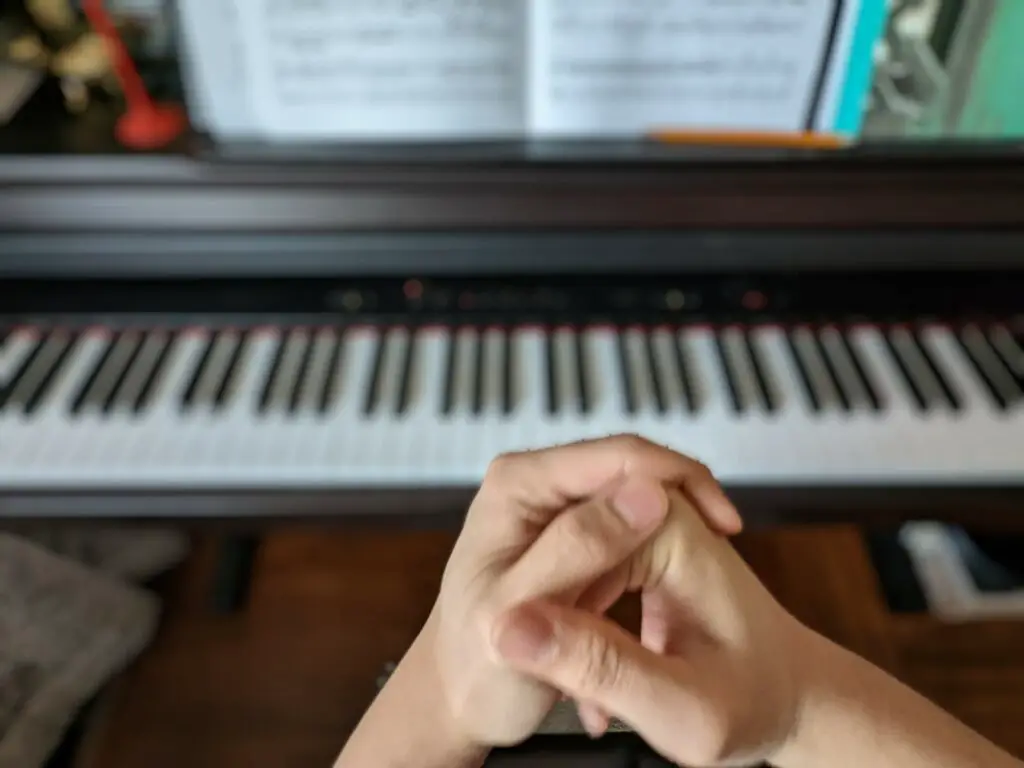This post contains affiliate links.
Growing up, we always hear from our parents or other adults how cracking your knuckles is bad for your hands and fingers. Since the hands are a piano player’s most prized asset, does cracking knuckles hurt a piano player’s playing skill?

In general, cracking knuckles won’t hurt your piano playing if done occasionally. However, studies have shown a few cases of constant, overzealous knuckle cracking leading to tendon injuries, which will damage the person’s piano playing.
Read on to understand what cracking knuckles does to your fingers and why you should drop the habit even though cracking knuckles doesn’t affect piano playing.
Why cracking knuckles won’t hurt your piano playing
According to this article from Havard, when you crack your knuckles, the popping sound you hear is from the gas bubbles inside your finger joints bursting. Much research has been done on the subject and the consensus is that these bubbles bursting is harmless. Thus, because cracking your knuckles is harmless, it won’t affect your piano playing.
There’s even a story of a physician who did a study on the effects of cracking knuckles. For the study, he cracked the knuckles on only one of his hands throughout his life. In the end, he did an x-ray and found no changes between his hands.
Why you should stop cracking knuckles anyway if you play the piano
Although cracking knuckles, for the most part, is harmless, there are exceptions. The same Harvard article mentions a few cases of too much knuckle cracking, leading to tendon injuries. If the people in those cases were to play the piano, they won’t play very well because they wouldn’t be able to control their fingers due to their injuries.
So, it may be a good idea to try to drop the habit if you can since it’s better to be safe than sorry. If you can’t fully break the habit, at least do it less frequently. It’s hard to break a habit so try your best at stopping yourself from cracking your fingers. Getting yourself a stress ball or a worry stone to occupy your hands also helps with dropping the habit.
For those who argue that cracking knuckles helps them loosen their fingers before actually playing the piano, practicing scales and arpeggios for 5 minutes is a much better warmup to loosen your fingers.
Not to mention, practicing scales and arpeggios also help improve your accuracy when striking the keys. There are other great benefits from practicing scales and arpeggios that are discussed in this article.

